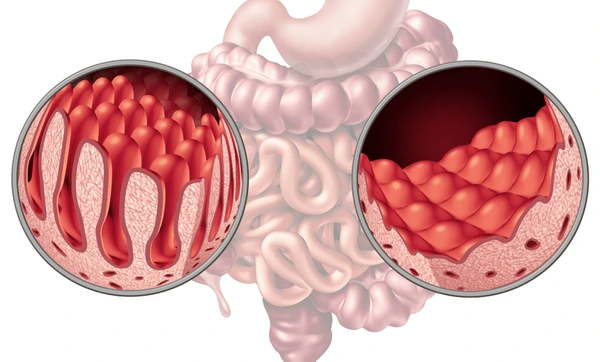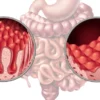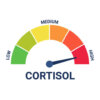
As someone who works closely with clients experiencing digestive and systemic health issues, I often see people with coeliac disease who go undiagnosed for years. Coeliac disease is an autoimmune condition in which the body reacts to gluten, a protein found in wheat, barley, and rye. This reaction causes damage to the small intestine, impairing nutrient absorption and affecting overall health.
Many people overlook subtle signs of coeliac disease, both digestive and non-digestive. Recognising these early symptoms can make a significant difference in diagnosis and long-term health. In this blog, I’ll walk you through what to watch for, how coeliac disease can present in children, and the steps to take if you suspect you might have this condition.
Understanding the Early Symptoms of Coeliac Disease
Coeliac disease can manifest in a variety of ways, and early symptoms are often subtle. Some people experience digestive issues, while others may notice non-digestive signs such as fatigue or skin changes.
Early detection is key because untreated coeliac disease can lead to nutrient deficiencies, osteoporosis, infertility, and other autoimmune conditions. Understanding the range of early symptoms helps ensure timely testing and intervention.
Digestive Symptoms of Coeliac Disease You Might Overlook
Digestive symptoms are the most common indicators of coeliac disease, yet they are often dismissed or attributed to other conditions:
· Bloating and gas: Persistent bloating after meals is a frequent but often overlooked sign.
· Diarrhoea: Digestive irregularities may vary, and some people experience alternating bowel habits.
· Abdominal pain and cramping: Chronic abdominal discomfort can indicate inflammation in the small intestine.
· Nausea or vomiting: Some individuals notice occasional nausea, particularly after consuming gluten.
· Weight loss or difficulty gaining weight: Malabsorption caused by intestinal damage can lead to unexplained changes in weight.
It’s important to remember that digestive symptoms alone are not always definitive. Coeliac disease can be silent in the gut, while affecting other systems in the body.
Non-Digestive Symptoms of Coeliac Disease
Coeliac disease can affect nearly every system in the body, leading to symptoms that may not immediately seem related to digestion:
· Fatigue and low energy: Chronic fatigue is common due to malabsorption of nutrients.
· Iron-deficiency anaemia: Poor absorption of iron can cause fatigue, pale skin, and weakness.
· Bone or joint pain: Calcium and vitamin D deficiencies may lead to osteoporosis or joint discomfort.
· Skin conditions: Dermatitis herpetiformis is a distinctive itchy rash associated with coeliac disease.
· Mood changes: Anxiety, depression, or irritability can arise due to nutrient deficiencies and inflammation.
· Dental enamel defects: Some individuals notice changes in tooth enamel or frequent cavities.
Because these symptoms can appear independently of digestive issues, coeliac disease is often misdiagnosed or overlooked.
How Coeliac Disease Affects Children: Signs to Look Out For
In children, coeliac disease can present differently from adults. Some key signs include:
· Delayed growth or puberty: Malabsorption can impact physical development.
· Abdominal bloating or discomfort: Digestive symptoms may be present but can be mild or intermittent.
· Chronic diarrhoea or constipation: Irregular bowel habits may signal early intestinal damage.
· Irritability or behavioural changes: Mood swings and fatigue may be subtle early signs.
· Weight fluctuations: Children may struggle to gain weight or lose weight without explanation.
Early recognition in children is particularly important to prevent long-term complications and support healthy growth.
Other Subtle Signs You Might Be Missing
Some symptoms of coeliac disease are less obvious but can indicate underlying gluten sensitivity or intestinal damage:
· Frequent headaches or migraines
· Peripheral neuropathy: Tingling or numbness in hands and feet
· Recurrent mouth ulcers
· Infertility or recurrent miscarriage
· Liver enzyme abnormalities: Often detected in routine blood tests
These subtle signs highlight the importance of considering coeliac disease even when digestive symptoms are minimal or absent.
What to Do if You Suspect Coeliac Disease
If you suspect you might have coeliac disease, the first step is to seek professional assessment. Early diagnosis is essential to prevent complications and support overall health.
How to Get Tested for Coeliac Disease
Testing typically involves:
· Blood tests: These measure antibodies such as anti-tTG and EMA, which indicate an immune response to gluten.
· Genetic testing: HLA-DQ2 and HLA-DQ8 genes are present in nearly all individuals with coeliac disease.
· Endoscopy and biopsy: If blood tests suggest coeliac disease, a biopsy of the small intestine confirms intestinal damage.
It’s important not to start a gluten-free diet before testing, as this can interfere with accurate results.
Importance of a Gluten-Free Diet for Diagnosis
If coeliac disease is confirmed, a strict gluten-free diet is the only effective treatment. Removing gluten allows the small intestine to heal, improves nutrient absorption, and alleviates symptoms.
Support from a registered dietitian or gut health professional can help ensure nutritional adequacy and prevent inadvertent gluten exposure.
Conclusion
Coeliac disease can present in many ways, from obvious digestive symptoms to subtle, non-digestive signs. Early recognition is critical for preventing complications and supporting long-term health.
By paying attention to both digestive and non-digestive symptoms, including those that may appear in children, you can take proactive steps toward diagnosis and treatment. If you suspect coeliac disease, seek testing and professional guidance before making dietary changes. With timely intervention and a carefully managed gluten-free diet, it’s possible to restore gut health, nutrient balance, and overall well-being.
References
- Coeliac UK – Coeliac Disease: Symptoms
- Mayo Clinic – Celiac Disease – Symptoms and Causes
- Harvard Health Publishing – Celiac Disease: Recognising the Signs
- Cleveland Clinic – Celiac Disease: Symptoms, Causes & Treatment
- Beyond Celiac – Understanding Celiac Disease Symptoms
Last Updated
Uploaded by Martin Cohen on 03/11/2025






